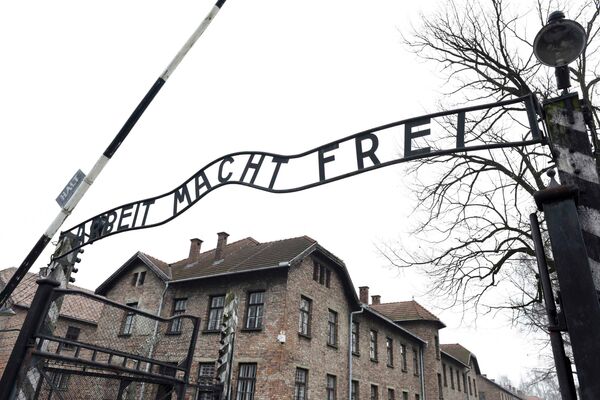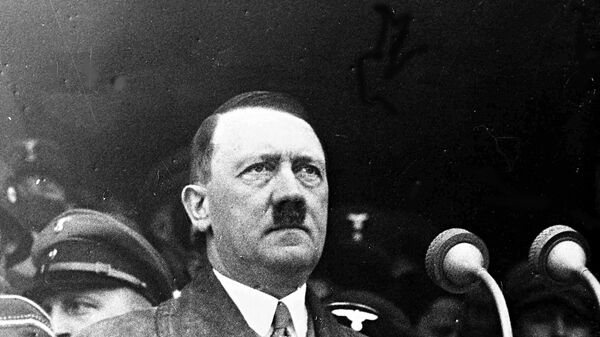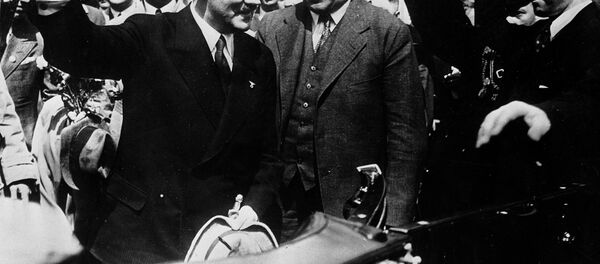Oliver Sears — whose mother Monika survived the Warsaw ghetto as a child — branded the sale of nine items from the Third Reich period as "utterly tasteless."
Among the items going under the hammer is a Nazi sash, an Anschluss campaign leaflet, a child's helmet and various German army daggers.
His appeal to have the offensive material withdrawn from sale in Dublin, on Saturday, September 9, has since been rejected by the auction house boss Ian Whyte.
Citing recent events in the United States involving neo-Nazis, Mr. Sears described the decision to proceed as "quite appalling."
"We have had Charlottesville and, rather than insulate himself from current political trends, I would urge Mr. Whyte again to pluck up the two microns worth of courage required to put morality before cheap, financial gain," Mr. Sears said.
Nazi 'Fine Art'
Defending the auction, Mr. Whyte said he sold a wide range of material and its main business was "fine art."
He argued it was "a form of censorship to say collectors cannot collect what they like provided it is legal."
"We have never received complaints about selling militaria of the Soviet Union, South American dictatorships, the IRA, UVF or other controversial organisations or regimes. All our buyers are genuine collectors who have a passion for history and the artifacts that bring it alive for them, and who will preserve and pass them on for prosperity. It is history. You can find terrible atrocities from the British and the French if you look back 100 to 150 years ago," stressing he had received few complaints, said Mr. Whyte.
Our most popular auction — The Eclectic Collector — is at https://t.co/aqaOwllnOp — history militaria, maps, books, sport, coins, medals etc pic.twitter.com/3wa9qDZlwo
— Whytes Dublin (@WhytesDublin) August 14, 2017
Symbolism Used by Far-Right Groups
Mr. Sears — who lost a number of other family members at the Auschwitz concentration camps — described the trade in such items as "foolish."
He stressed the sale of Nazi memorabilia was in an "altogether different league" to all other historical memorabilia given the crimes committed by the Nazi regime.

The swastika was a "symbol of absolute terror" for his family.
"For me particularly, they are an appalling part of history. What distinguishes this kind of symbolism from any other militaria is that these symbols are used by hundreds of far-right groups. The attitude is not what these represent, but the bottom line which is making money. No one I have spoken to disagrees with me about this," said Mr. Sears.
In 1942, before the Warsaw Ghetto uprising, the Nazi SS deported around 300,000 Jews living there before they were killed in gas chambers.
Most of the major auction houses in London have a policy of not selling Nazi memorabilia.
A spokesman for Christie's said: "Christie's has a well-established, specific policy that it does not sell Nazi memorabilia or works of art that are by Adolf Hitler."





